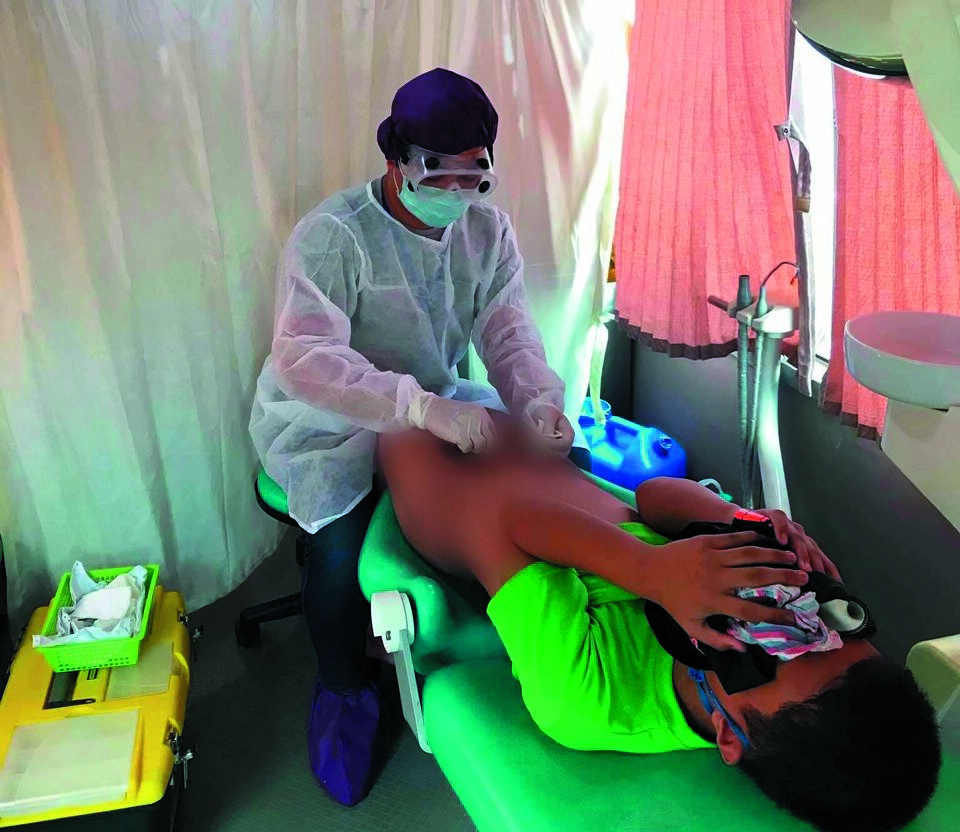
2-IN-1 MISSION The free circumcision project of the municipal government of Carmona, Cavite province, serves a dual purpose this year: Putting young boys through the rite of passage to manhood and checking them and their family members for symptoms of the coronavirus. —PHOTO COURTESY OF CARMONA MUNICIPAL GOVERNMENT
Not even an outbreak could stop the traditional “circumcision season” in a town in Cavite province.
But this time, health workers in Carmona have gone to the communities not only to perform the procedure on young boys but also to check them and their immediate family members for symptoms of the coronavirus.
Homer Aguinaldo, the municipal health officer, said up to 40 doctors and 40 nurses had been recruited for the program called “Manhood on Wheels.”
Under normal circumstances, the local government would offer the free surgery to hundreds of preteen boys, either at the community hospital or the municipal auditorium.
“We actually thought of canceling it this year,” Aguinaldo said. “But we realized that we don’t know how it will be next year. We could still be in the same situation—the ‘new normal,’ they say—so we might as well go ahead with it.”
“Besides, we don’t want our [health] programs hampered [by the pandemic] as much as possible,” he added.
Mobile operating room
Since the Luzon lockdown has made mass circumcisions impossible, the medical team has decided to go village to village, rolling out a “health bus” or a mobile operating room where a fully reclined dental chair serves as an operating table.
Manhood on Wheels has so far circumcised about 200 boys in Carmona over the past two weeks out of this year’s target of 600.
Parents can schedule an appointment by calling the local health office or registering online.
For this year’s service, the health workers are taking extra measures in view of the coronavirus contagion. In effect, the program is doubling as the local government’s way of closely monitoring the residents’ overall health condition amid the pandemic.
No to ‘pukpok’
“Before [a boy] gets into the bus, we screen him and everyone in his household (for virus symptoms) by checking their vital signs,” Aguinaldo said.
As of Wednesday, one of those examined had tested positive for the virus, while two others had been classified as suspected and probable cases.
The program again comes with an educational campaign advising young boys and their parents against the unhygienic, so-called “pukpok” method performed by nonmedical professionals who use a razor or any sharp blade to remove the foreskin.
Since a newly circumsized boy usually takes seven to 10 days to heal, Aguinaldo said, “it gives (these youngsters) another reason to stay home” while the lockdown remains in effect.